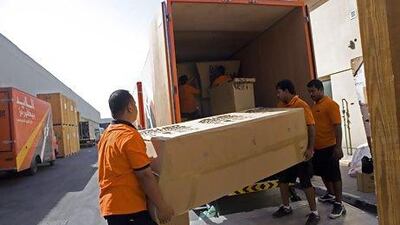It's all very well for an expat to move back home, where everything is still familiar and you have the support of friends and family. But what if you are relocating to an unfamiliar country? Rupert Connor of Acuma offers nine tips on what to do:
1. Be sure
Moving can be extremely stressful. Be as certain as you can be that it's the right move for you before you go. If possible, visit the country before you make up your mind and don't rely on other people's impressions. Ask yourself if the new culture will suit you and, just as important, your family.
2. Check your benefits
If your company has initiated your move, you may be eligible for relocation benefits. Make sure you ask if they haven't told you already.
3. Budget
Good budgeting could be what makes the difference between a successful relocation and a disaster. Before you go, work out what everything is going to cost during those crucial first months when you're trying to find your feet in a foreign land.
4. Insurance
If you haven't already arranged appropriate insurance (such as health, life and travel cover) for yourself and your family, do so as soon as possible. Also, make sure that the country you are moving to has adequate healthcare facilities and infrastructure to support you, especially if you suffer from a medical condition that requires treatment or medication.
5. Banking
You may need to open a new bank account in your new country - look for information on the one that suits you best. Do you need to close your current bank account? At the very least, you'll need to tell your current bank that you're moving.
6. Credit cards
Credit-card companies need to be informed you're moving. Also, will the credit cards you're taking with you be widely accepted?
7. Currency exchange
When moving abroad you may be moving hundreds of thousands of pounds or dollars. Therefore, even a 5 per cent shift in the exchange rate can mean the difference between buying a new shell of a house and buying one with all the added extras. Check out a website such as www.x-rates.com and select the currencies. This will show you the historic moves, so you will know whether US$1.50 (Dh5) for a pound is good or bad - and whether to wait a few more days before you run to the bank.
8. Paperwork
No matter how insignificant that old document at the back of the bottom drawer may seem now, take it with you. Chances are, at some stage, you'll have to show it to someone. Moving countries can be a bureaucratic nightmare at the best of times, but if you come prepared with the necessary paperwork you stand the best chance of a stress-free relocation. Things to think about include birth certificates, wedding certificates, educational certificates and medical certificates (including those for your pets).
9. Make friends
Whether locals or fellow expats, nothing will help you more than being able to rely on the assistance of your friends when you need it. Don't think that socialising is time wasted, it's what makes a new country feel like home.
Rupert Connor is an independent financial adviser at Acuma Independent Financial Advice

